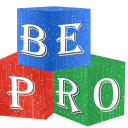How I Started A Profitable Food Entrepreneurship Blog
Hello! Who are you and what business did you start?
My name is Brett Lindenberg and I started the mobile food entrepreneurship blog FoodTruckEmpire.com out of my one-bedroom apartment in St. Paul, Minnesota back in 2014. The first ever podcast recorded for the blog was with a hot dog vendor I found on YouTube. Fast forward to 2019 and I’ve now done over 100 interviews with food entrepreneurs.
The goal of the website is to prepare entrepreneurs for starting profitable food businesses. There are a lot of television shows like The Great Food Truck Race that romanticize what it’s like to operate a food truck or start a restaurant. While I love these shows as much as the next guy, the truth is there are all kinds of real challenges associated with starting these small businesses that people don’t realize: They will be hiring, taking out loans to start the business, marketing, and the list goes on. Our goal is to prepare food business owners for these challenges.
While the majority of our content is free and supported by advertising, we also offer a Food Truck Academy Class that’s held 100% online and guides students through the often confusing process of starting a food truck. Many of the past students of...















